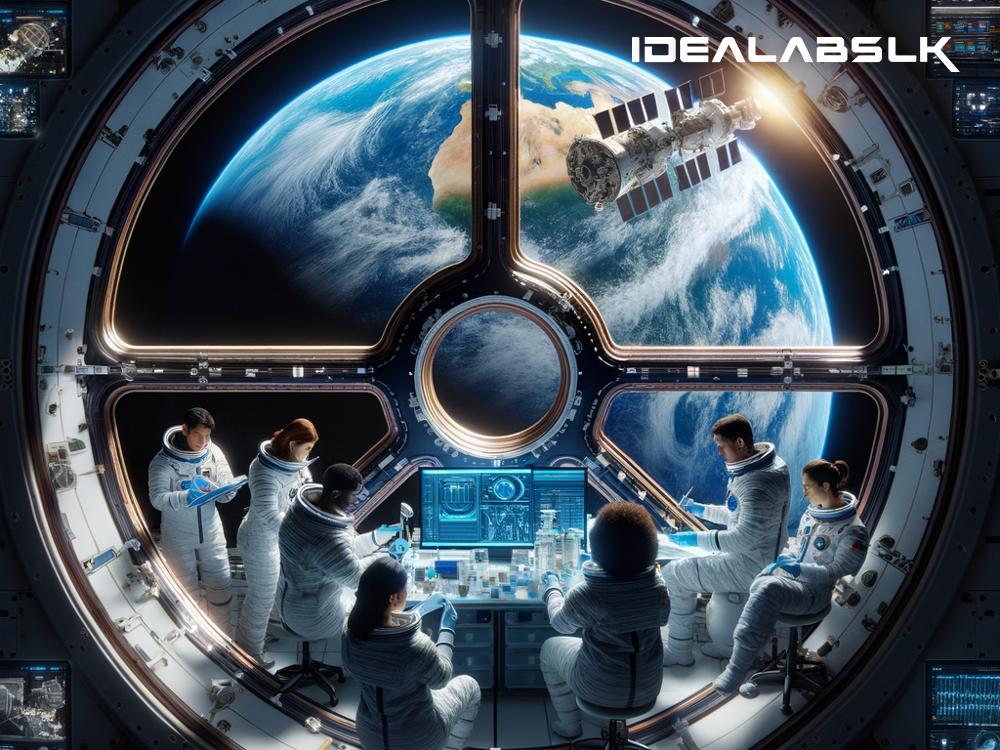Title: Exploring the Stars, Healing Hearts: How Space Exploration Is Revolutionizing Medicine and Healthcare by 2024
In the not-so-distant past, space exploration was often viewed through a telescope of curiosity and discovery, focused on unmasking the mysteries of the universe. But as we edge closer to 2024, the landscape of space exploration is undergoing a transformative shift – one that’s catapulting the field of medicine and healthcare into new, uncharted territories. It’s a fusion of the cosmic and the microscopic, where astronauts and doctors join forces in a shared mission to unlock groundbreaking advancements in health and well-being.
Zero-Gravity, Infinite Possibilities
Imagine a hospital where gravity doesn’t call the shots – that’s the reality astronauts experience aboard the International Space Station (ISS). In this unique environment, scientists and researchers are conducting experiments that simply can’t be replicated on Earth. The lack of gravity allows them to observe how cells, tissues, and the human body as a whole behave and respond to treatments in ways we’ve never seen before.
One of the most fascinating studies involves muscle atrophy and bone density loss, conditions that astronauts face due to extended periods in zero-gravity. These challenges mirror ailments on Earth, such as osteoporosis and muscle wasting from aging or long-term bed rest. By understanding how to combat these effects in space, researchers are developing new treatments and exercises that could revolutionize rehabilitation and preventive care back on our home planet.
The Vaccine Vacuum: Speedier Solutions from Space
Space’s unique environment has also proven to be a fertile ground for vaccine development. Without Earth’s gravity, bacteria and viruses behave differently, often growing more quickly and forming into structures that are tough for scientists to mimic in a lab. This accelerated growth allows researchers in space to study pathogens more effectively, leading to faster development of vaccines and a better understanding of infectious diseases.
An example of this is the research conducted on Salmonella, a common cause of food poisoning, aboard the ISS. Studies in space led to the development of a new Salmonella vaccine, marking a significant step forward in controlling outbreaks. This is just the tip of the iceberg, as researchers believe the zero-gravity environment could expedite the creation of other vaccines, potentially saving millions of lives on Earth.
Telemedicine: Bridging the Cosmic Divide
The vast distances of space mean astronauts can’t make a quick trip back to Earth for a doctor’s visit. This necessity has birthed advanced telemedicine technologies, enabling remote medical consultations, diagnoses, and even treatments. Through high-definition video calls, wearable sensors, and robotic systems, astronauts receive top-notch medical care millions of miles away from the nearest hospital.
This technology is not just for spacefarers. It’s paving the way for remote communities on Earth to access specialized medical care, bridging gaps in the healthcare system, and ensuring that geography is no longer a barrier to receiving life-saving treatments. By 2024, these technologies will likely become even more integrated into our healthcare systems, making doctor’s visits more convenient and accessible for everyone.
Mental Health: The Final Frontier
The psychological impact of space travel presents yet another area ripe for exploration. Astronauts on long-duration missions face immense mental and emotional challenges, from the isolation of being away from loved ones to the stress of living in a confined space. Research into coping mechanisms and support systems for astronauts is leading to new insights into mental health care, with potential applications for combating depression, anxiety, and stress-related disorders on Earth.
The Horizon of Hope
As we gaze into the future, the convergence of space exploration and healthcare holds the promise of unlocking new frontiers in medicine. From combating age-related diseases with insights gained from zero-gravity experiments to harnessing telemedicine for global health equity, the possibilities are as boundless as the universe itself.
In essence, the journey to the stars is not just about exploring outer space – it’s about bringing back invaluable knowledge and technologies that can improve life on Earth. By 2024, we can anticipate these efforts to yield profound impacts on how we prevent, diagnose, and treat diseases, ushering in a new era of healthcare innovation inspired by the final frontier.
As we continue to push the boundaries of what’s possible in space, we’re also expanding the horizons of hope for millions of people around the world. The marriage of space exploration and healthcare is a testament to human ingenuity and our relentless pursuit of a healthier, brighter future for all.

